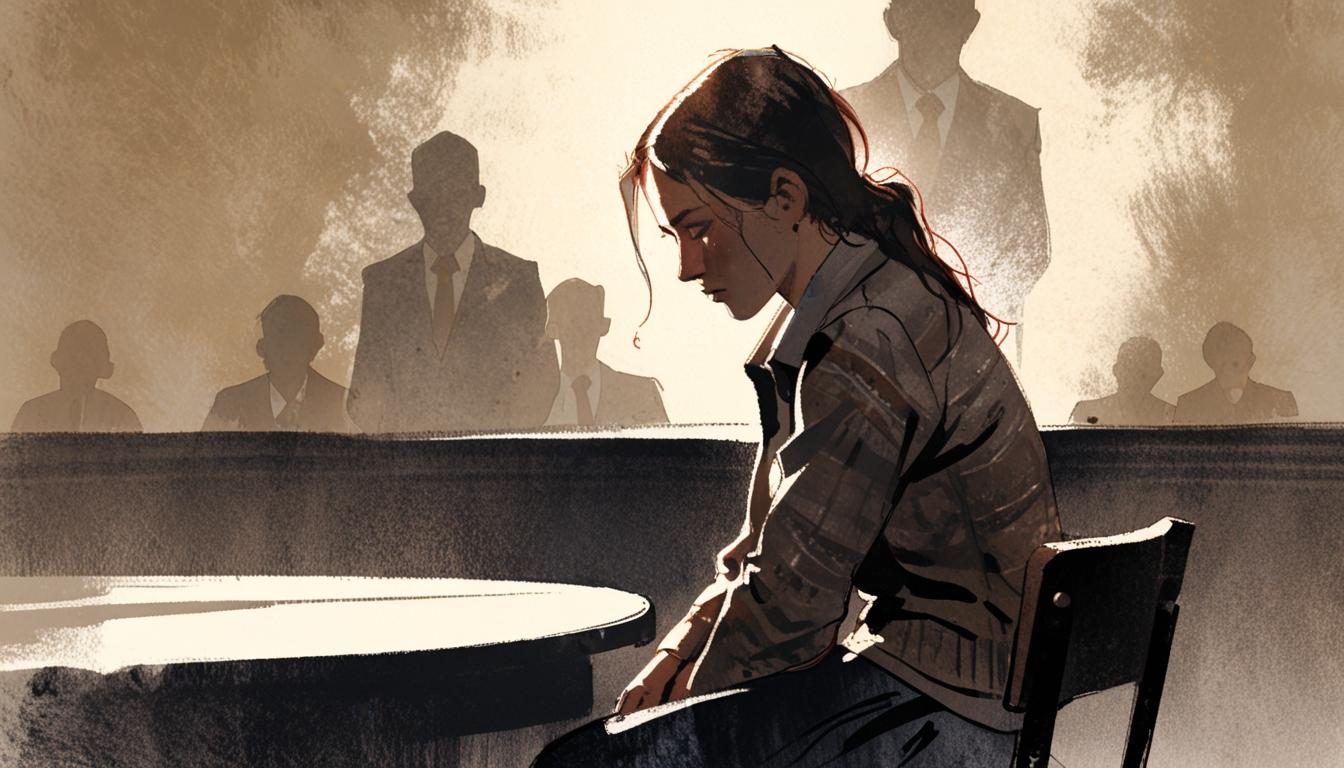Groomed: A National Scandal, airing on Channel 4 on 30 April, reveals the harrowing experiences of grooming gang victims in the UK and highlights the contentious debate surrounding convictions and campaigners claiming wrongful imprisonment.
A new Channel 4 documentary titled Groomed: A National Scandal exposes deeply divisive and controversial reactions surrounding grooming gang trials in the UK, highlighting both accounts from victims of abuse and the views of campaigners who claim many convictions were unjust.
The programme, scheduled for broadcast on 30 April, centres on the testimonies of five women who recount their harrowing experiences of sexual abuse and exploitation by organised grooming gangs. Two of these women, identified as Chantelle and Jade, waive their anonymity to speak directly about the abuse they endured. Their stories form the emotional core of a narrative spanning over two decades and detailing widespread grooming offences predominantly in West Yorkshire and the North Kirklees area.
Among the offenders convicted is Irfan Khan, aged 37, from Batley, West Yorkshire, who was sentenced last year to 12 years in prison with an additional five-year extended licence for three counts of rape and making threats to kill. Khan was part of a group of 24 men who were jailed following Operation Tourway, an extensive investigation by West Yorkshire Police which revealed a disturbing pattern of abuse, rape, and trafficking of eight girls over a period from 1999 to 2012 across towns including Batley and Dewsbury. The total prison sentences handed down to the group amounted to 346 years.
However, the Channel 4 documentary also features members of a campaign group called Fighting For Fair Trials, whose organiser, Samira Khan, sister of Irfan Khan, argues that many men have been wrongly imprisoned. While condemning the use of derogatory language used by some supporters of the campaign in online chats, she defended the right of these individuals to question the veracity of some allegations. Samira Khan told MailOnline, “The group has used abusive words online, I agree with that,” but also said, “I can’t be sat 24/7 on my phone going through what people are saying – I can’t control what comes out of everyone’s mouths.”
Protesters connected to Fighting For Fair Trials have been documented using offensive and abusive terms toward victims of grooming gang abuse through TikTok livestreams and WhatsApp private groups. Recorded messages include slurs such as ‘dirty b*es’, ‘lying b*es’, and ‘sick cow’, targeting young female survivors. Comments in the private WhatsApp groups accessed by the documentary makers include accusations that some victims are not genuine, including statements like “Accuser is not a victim” and “She’s a known prostitute.” Additionally, online posts from the campaign’s TikTok and Facebook accounts suggest that false allegations of grooming are common and are motivated by financial gain, with claims that “advertising offering thousands of pounds is commonplace on social media.”
Irfan Khan himself appears briefly in a video clip featured in the documentary, heard complaining about his imprisonment and asserting his innocence. Speaking from a prison landline, he told viewers during a TikTok livestream, “It’s really unfair – you know, it’s just unfair. I’ve done nothing wrong and I’ve sat here for 15 months.” Samira Khan explained to MailOnline that he had not broken prison rules by using a mobile phone, clarifying, “My brother didn’t have a mobile phone. He called from a prison landline. He called me on my mobile phone. I was online at the time – it was a coincidence.”
The documentary situates itself within a broader context of grooming gang scandals that have rocked the UK, especially cases involving predominantly Asian men convicted of child sexual exploitation. The issues have drawn considerable public and political attention, with calls for inquiries into the handling of such cases by law enforcement and local authorities. A 2023 report on the Rochdale grooming scandal exposed systemic failures by police and council officials, highlighting that young girls, mainly white and from disadvantaged backgrounds, were left vulnerable for years due to inadequate investigations and indifference.
Historical reviews have also implicated police operations in Manchester and Oldham in failing to adequately protect children from organised sexual abuse. The Independent Inquiry into Child Sexual Abuse described the phenomenon as an “epidemic,” affecting tens of thousands of victims nationwide. However, a 2020 Home Office study found that gangs were most commonly composed of white men, complicating prevailing narratives about ethnicity and grooming gangs.
The Home Office commented to the documentary makers that “The grooming scandal was one of the greatest failures in our country’s history” and announced it had commissioned a rapid national audit to assess the full scale of grooming gangs, including examining ethnic backgrounds.
Groomed: A National Scandal presents the complex debate around grooming gang offences, featuring perspectives from survivors, accused individuals, campaign groups, and authorities. It airs on Channel 4 at 9 pm on Wednesday, 30 April.
Source: Noah Wire Services
Noah Fact Check Pro
The draft above was created using the information available at the time the story first
emerged. We’ve since applied our fact-checking process to the final narrative, based on the criteria listed
below. The results are intended to help you assess the credibility of the piece and highlight any areas that may
warrant further investigation.
Freshness check
Score:
9
Notes:
The narrative includes recent events such as the upcoming broadcast of a Channel 4 documentary and references to contemporary discussions around grooming gang trials, indicating fresh content.
Quotes check
Score:
8
Notes:
The quotes appear original to this narrative, as there are no earlier known online sources for them. The quotes from Samira Khan and Irfan Khan are specific to interviews and the documentary, lacking prior references.
Source reliability
Score:
8
Notes:
The narrative originates from the Daily Mail, a well-known but sometimes controversial publication. The inclusion of perspectives from both victims and activists adds depth but requires critical evaluation.
Plausability check
Score:
9
Notes:
The claims about grooming gang trials and related controversies align with known public discussions and documented historical cases in the UK, enhancing plausibility.
Overall assessment
Verdict (FAIL, OPEN, PASS): PASS
Confidence (LOW, MEDIUM, HIGH): HIGH
Summary:
The narrative is generally reliable and fresh, drawing from credible sources and contemporary events. While the Daily Mail may have a mixed reputation, the inclusion of diverse perspectives and recent developments supports its plausibility.













